Event Recap: Restorative Justice in Schools
By Lizzeth Mancilla
Engagement and Policy Intern
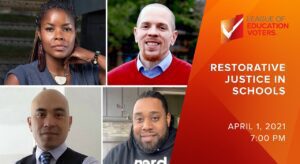 Restorative Justice allows people affected by crime to communicate with the person responsible, often with the aim of a face-to-face meeting. This gives them the chance to talk about the incident. They can explain how it has impacted them, seek assurances that it won’t happen again, and agree on how to put things right.
Restorative Justice allows people affected by crime to communicate with the person responsible, often with the aim of a face-to-face meeting. This gives them the chance to talk about the incident. They can explain how it has impacted them, seek assurances that it won’t happen again, and agree on how to put things right.
This is what many people affected by crime want, which is why 85% of victims who go through Restorative Justice are satisfied with the experience. Restorative Justice also leads to a significant drop in re-offending, as it helps people who have committed crimes to recognize the harm they have caused. Restorative practice can also be used to address non-criminal harm.
In this Zoom meeting, we discussed Restorative Justice in schools, focusing on a healing approach to student behavior versus a penal approach. Our panelists discussed what brought them to the work, what their programs do, their philosophy, and where they can be found. They also discussed ways to expand these programs throughout Washington state.
Featured Participants:
- Toyia Taylor, Executive Director and Founder, WeAPP
- Sean Goode, Executive Director, Choose 180
- Saroeum Phoung, Executive Director, Peacemaking Academy
- Dion Schell, Director of Education, Community Passageways
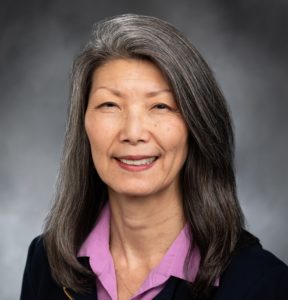 In our podcast, we interview policymakers, partners, and thought leaders to spotlight education policies, research, and practices so that together we can create a brighter future for every Washington student.
In our podcast, we interview policymakers, partners, and thought leaders to spotlight education policies, research, and practices so that together we can create a brighter future for every Washington student.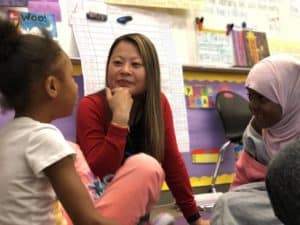 Students learn most effectively when their school feels safe, inclusive, supportive, and respectful. (1)
Students learn most effectively when their school feels safe, inclusive, supportive, and respectful. (1)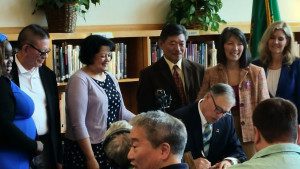
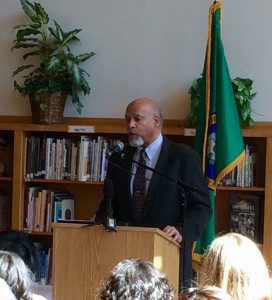
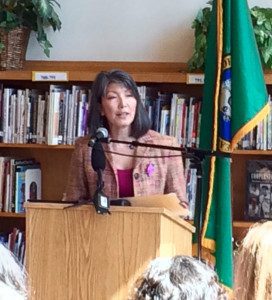
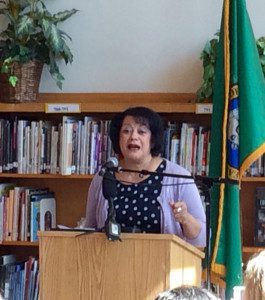
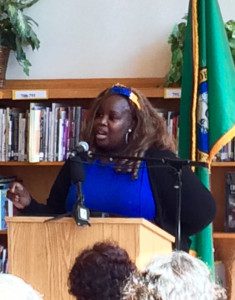
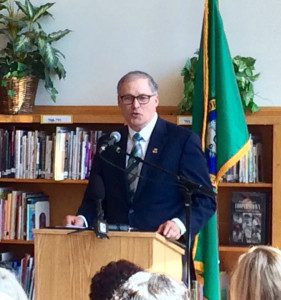
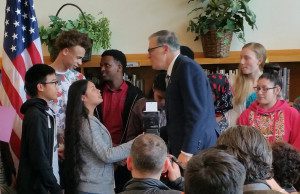
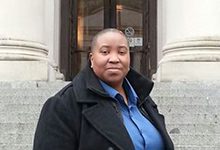 Dakoda Foxx’s advocacy work began close to home in 2011, after her daughter was suspended for 100 days. Dakoda knew this “wasn’t right,” so she went to
Dakoda Foxx’s advocacy work began close to home in 2011, after her daughter was suspended for 100 days. Dakoda knew this “wasn’t right,” so she went to 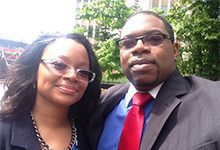 At the League of Education Voters (LEV), we recognize all of the hard work that you do toward improving public education across Washington state. We are pleased to announce our Activists of the Month for October: Quontica and Marlando Sparks. Read more about their experience advocating for parent engagement and their plans to open a public charter school for at-risk youth in Pasco.
At the League of Education Voters (LEV), we recognize all of the hard work that you do toward improving public education across Washington state. We are pleased to announce our Activists of the Month for October: Quontica and Marlando Sparks. Read more about their experience advocating for parent engagement and their plans to open a public charter school for at-risk youth in Pasco.![Transforming School Discipline: The Next Step [image of children running]](https://b2881166.smushcdn.com/2881166/wp-content/uploads/2014/03/2014_discipline_levinars-300x184.jpg?lossy=1&strip=1&webp=1) During the 2013 legislative session, many of you helped us pass a law (SB 5946) that makes school discipline data public and limits the number of days that students can be removed from class.
During the 2013 legislative session, many of you helped us pass a law (SB 5946) that makes school discipline data public and limits the number of days that students can be removed from class.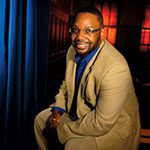 By Tre’ Maxie, Member, Washington State Board of Education
By Tre’ Maxie, Member, Washington State Board of Education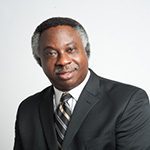 By Dr. Carey G. Anderson, Reverend, First African Methodist Episcopal Church
By Dr. Carey G. Anderson, Reverend, First African Methodist Episcopal Church